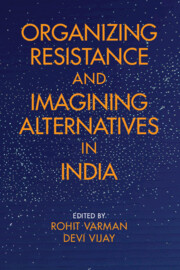Book contents
2 - LETS and the Possibilities of a Twenty-First-Century Alternative Economic System
Published online by Cambridge University Press: 30 June 2022
Summary
In the twenty-first century, several initiatives for the search of alternatives in the form of ‘economic democracy’ that could move beyond capitalism have been theoretically articulated (Shantz and Macdonald, 2013; Solimano, 2014). However, the success of an alternative economic system partly depends on whether capitalism has become obsolete or whether it still has enough elasticity to resolve its periodic crises and accommodate various demands articulated within it. So far, in the last century, alternatives in the form of public ownership of means of production, self-management, planning, market socialism, universal basic income, state support for basic capital, shareholder socialism, and a compromise of a market economy with a workable welfare state have been noticed in various parts of the world. At present, there is hardly any positive social system that could ensure that a post-capitalist system will necessarily be more humane, just, and efficient than the alternatives that could be arrived at by reforming capitalism instead of altering the basic social structure of the capitalist economy (Corneo, 2017). The point is that if contemporary capitalism is reproducing uncouth economic inequality and unemployment of magnanimous proportion as witnessed during the COVID-19 pandemic, then a search for an alternative to capitalism is something worth pursuing given the fact that the exploitative and unequal character of contemporary capitalism is not going to change even in a post-COVID world.
PROBLEMS OF CONTEMPORARY CAPITALISM
The lifestyle and consumption patterns of the top 1 percentile population of the world comprising of the economic elites, super-wealthy business tycoons, upper-middle-class technocrats, and productive entrepreneurs have been distinctively different from the rest of the global population (Solimano, 2014). The tremendous inequality within contemporary capitalism is due to the excessive returns on capital over the rate of growth of output and income (r > g) and the money gained from inheritance accumulated over time.
In imagining an alternative to the capitalist system, three fundamental issues have to be addressed. The first is the identification of the domain of resistance to the capitalist order. The second is the nature of agency that can resist capital and state with an agenda to transcend capitalism. The third task is the construction of an alternative imagination of a viable post-capitalist system.
- Type
- Chapter
- Information
- Publisher: Cambridge University PressPrint publication year: 2022

